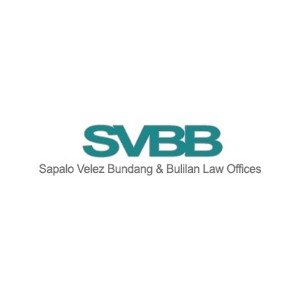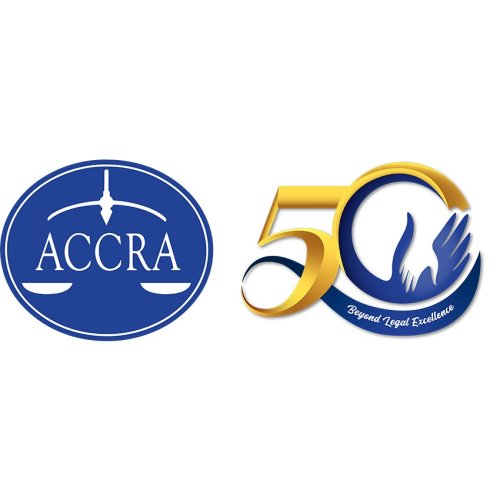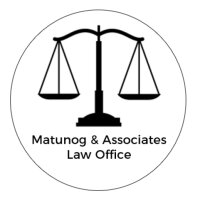Best Public-Private Partnerships (PPP) Lawyers in Davao City
Share your needs with us, get contacted by law firms.
Free. Takes 2 min.
List of the best lawyers in Davao City, Philippines
About Public-Private Partnerships (PPP) Law in Davao City, Philippines
Public-Private Partnerships (PPPs) are collaborative agreements between government entities and the private sector for the purpose of delivering projects or services that are traditionally provided by the public sector. In Davao City, PPPs are increasingly used for infrastructure development, utilities, and public services. These partnerships allow the government to leverage private sector expertise, efficiency, and financial resources, resulting in improved delivery of public goods and services for residents and businesses. PPP arrangements are governed at both the national and local levels, with Davao City implementing these projects in compliance with the Philippine PPP laws and with localized policies for special considerations within the city.
Why You May Need a Lawyer
Navigating PPPs can be complex due to the legal, financial, and regulatory requirements involved. You may need a lawyer in the following situations:
- Drafting, reviewing, or negotiating PPP contracts and agreements to ensure your interests are protected.
- Participating in bidding or selection processes for PPP projects initiated by the Davao City government.
- Ensuring compliance with local, national, and sector-specific regulations relating to PPPs.
- Resolving disputes between parties, such as issues regarding contract execution, payment schedules, or project deliverables.
- Seeking to understand the legal liabilities or risk-sharing mechanisms involved in a PPP project.
- Structuring or restructuring project arrangements to address changes in law or unforeseen circumstances.
- Managing intellectual property rights, confidentiality, environmental, and zoning concerns that may arise from PPP projects.
Local Laws Overview
In Davao City, PPPs are regulated by national laws such as Republic Act No. 6957 as amended by RA 7718 (the Philippine BOT Law), which provides for the legal framework for Build-Operate-Transfer (BOT) and similar schemes. Apart from national statutes, Davao City has its own PPP Code (City Ordinance No. 0370-16) which outlines specific procedures, selection processes, and requirements for PPP projects within the city’s jurisdiction.
Key aspects of local laws governing PPPs in Davao City include:
- Strict compliance with transparent and competitive bidding and selection procedures for project proponents.
- Clear delineation of responsibilities and risk-sharing between the government and private partner.
- Requirements for feasibility studies, public consultations, and disclosures to promote accountability and ensure public benefit.
- Proper contract management, termination clauses, and performance-based requirements to safeguard government and public interests.
- Regulations concerning incentives, government guarantees, and payment, if any, to private sector participants.
Frequently Asked Questions
What is a Public-Private Partnership (PPP)?
A PPP is a cooperative arrangement between the government and a private company where both parties share resources, risks, and rewards to develop and operate public infrastructure or services.
Which agencies oversee PPPs in Davao City?
The Davao City PPP Board is the primary local agency tasked to process PPP proposals, while national agencies like the PPP Center of the Philippines provide guidance and technical support.
What types of projects in Davao City are usually developed through PPP?
Common PPP projects in Davao City include transport infrastructure, public markets, water supply systems, waste management facilities, schools, and hospitals.
How does the bidding process for PPP projects work?
The local government typically issues an invitation for interested private parties, then conducts a transparent and competitive bidding process as mandated by the Davao City PPP Code.
Can foreign companies participate in PPPs in Davao City?
Yes, foreign companies can participate in PPPs, subject to constitutional and legal limitations on foreign ownership and sector-specific rules.
What legal documents are required for a PPP?
Key documents include project proposals, feasibility studies, joint venture or PPP agreements, performance bonds, and proofs of compliance with regulatory requirements.
Who assumes the risks in a PPP project?
Risk allocation is negotiated in the PPP contract, with specific risks, such as construction, financial, or operational risks, shared between the government and private partner according to their capabilities and the nature of the project.
How does the government ensure public welfare in PPPs?
By requiring public consultations, competitive bidding, fair evaluation, and setting benchmarks and penalties for underperformance, the government safeguards public interest in PPP agreements.
What recourse is available if disputes arise in a PPP?
Dispute resolution mechanisms, such as mediation, arbitration, or court litigation, are usually stipulated in the PPP contract and are available for resolving conflicts between the contracting parties.
How long do PPP projects typically last?
PPP contracts can range from several years up to 50 years, depending on the type and scale of the project, and the period needed for the private partner to recover investments and earn returns.
Additional Resources
Below are useful resources and organizations that can provide further guidance about PPPs in Davao City:
- Davao City Public-Private Partnership Board (Davao City Hall)
- Philippine PPP Center - provides technical and legal support for PPPs nationwide
- National Economic and Development Authority (NEDA) - regulatory and planning oversight
- Local offices of the Department of the Interior and Local Government (DILG)
- Integrated Bar of the Philippines - Davao Chapter for referral to local lawyers with PPP experience
Next Steps
If you are considering engaging in a PPP project in Davao City or are currently facing legal questions regarding an ongoing PPP, it is important to consult with a lawyer who has experience in PPP law and local governance. You can start by gathering all relevant documents relating to your project, noting your specific concerns or objectives, and contacting a trusted legal professional for a consultation. Additionally, reaching out to the Davao City PPP Board or the PPP Center can help clarify project eligibility and procedural requirements. Proper legal guidance will ensure your interests are protected and that you comply fully with both national and local law throughout your PPP journey.
Lawzana helps you find the best lawyers and law firms in Davao City through a curated and pre-screened list of qualified legal professionals. Our platform offers rankings and detailed profiles of attorneys and law firms, allowing you to compare based on practice areas, including Public-Private Partnerships (PPP), experience, and client feedback.
Each profile includes a description of the firm's areas of practice, client reviews, team members and partners, year of establishment, spoken languages, office locations, contact information, social media presence, and any published articles or resources. Most firms on our platform speak English and are experienced in both local and international legal matters.
Get a quote from top-rated law firms in Davao City, Philippines — quickly, securely, and without unnecessary hassle.
Disclaimer:
The information provided on this page is for general informational purposes only and does not constitute legal advice. While we strive to ensure the accuracy and relevance of the content, legal information may change over time, and interpretations of the law can vary. You should always consult with a qualified legal professional for advice specific to your situation.
We disclaim all liability for actions taken or not taken based on the content of this page. If you believe any information is incorrect or outdated, please contact us, and we will review and update it where appropriate.












